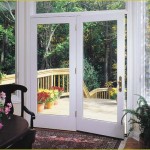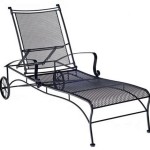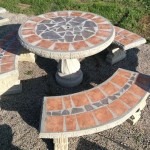Interlocking Polywood Deck Patio Tiles: Atlanta, Georgia
Atlanta, Georgia, with its humid subtropical climate, presents unique challenges and opportunities for outdoor living spaces. Decking and patio surfaces require durable, weather-resistant materials that can withstand the heat, humidity, and occasional severe weather events that are common to the region. Interlocking polywood deck patio tiles offer a compelling solution for Atlanta homeowners and businesses seeking a low-maintenance, aesthetically pleasing, and environmentally conscious decking option.
Polywood, a material typically crafted from recycled plastics, presents a significant alternative to traditional wood decking. Its composition inherently resists rot, decay, and insect infestation, issues that are frequently encountered in Atlanta’s climate. The interlocking design of these tiles allows for straightforward installation, often eliminating the need for professional contractors, which can represent a significant cost saving. This article explores the benefits, considerations, and applications of interlocking polywood deck patio tiles within the Atlanta, Georgia context.
Durability and Weather Resistance
The primary advantage of interlocking polywood deck patio tiles in Atlanta resides in their exceptional durability and weather resistance. The high humidity and frequent rainfall in Atlanta create an environment conducive to the growth of mold, mildew, and fungus on organic materials like traditional wood. Polywood, being composed of recycled plastics, is impervious to these biological threats. The material does not absorb moisture, thereby preventing warping, cracking, and splintering that can occur with natural wood decking.
Furthermore, Atlanta experiences significant temperature fluctuations throughout the year. Summers are typically hot and humid, while winters can bring occasional freezing temperatures. Polywood decking tiles are designed to withstand these temperature variations without significant degradation. The material is formulated to resist fading from prolonged exposure to sunlight, maintaining its aesthetic appeal for years to come. Additionally, polywood's inherent resistance to ultraviolet (UV) rays helps to prevent the material from becoming brittle or chalky over time.
These interlocking tiles are also highly resistant to chemical damage. Spills from common household products, such as cleaning solutions, fertilizers, and automotive fluids, are less likely to stain or degrade the surface of polywood decking compared to traditional wood. This makes them a practical choice for outdoor dining areas, poolside patios, and other areas where spills are likely to occur. The ease of cleaning is another significant benefit; a simple wash with soap and water is often sufficient to remove dirt and debris.
The interlocking design also contributes to the overall durability of the deck. Instead of relying solely on screws or nails, the interlocking mechanism distributes weight and pressure evenly across the entire surface. This reduces the likelihood of individual tiles becoming loose or dislodged over time. The interlocking system also allows for some degree of expansion and contraction due to temperature changes, minimizing stress on the tiles and the underlying subframe.
In areas of Atlanta prone to flooding or heavy rainfall, polywood's resistance to water damage is particularly valuable. Unlike wood, which can become waterlogged and prone to rot after prolonged exposure to moisture, polywood remains stable and structurally sound. This makes it an ideal choice for decks and patios located near pools, ponds, or other bodies of water.
Installation and Maintenance
The interlocking design of polywood deck patio tiles greatly simplifies the installation process. Unlike traditional decking, which requires specialized tools and expertise, interlocking tiles can often be installed by homeowners with minimal experience in construction. The tiles typically snap together securely, creating a seamless and uniform surface. The installation process generally involves preparing a level and stable subframe, laying out the first row of tiles, and then progressively interlocking the remaining tiles. The tiles can be cut to size using standard woodworking tools, allowing for customization to fit any deck or patio shape.
A well-prepared subframe is critical for the longevity and stability of the deck. The subframe provides a solid foundation for the tiles and ensures that they remain level and secure. Depending on the specific application, the subframe can be constructed from wood, concrete, or composite materials. Proper drainage is also essential to prevent water from accumulating beneath the tiles, which could lead to mold growth or damage to the subframe. The subframe should be designed to allow for adequate airflow to promote drying and prevent moisture buildup.
Once installed, interlocking polywood deck patio tiles require minimal maintenance. Unlike wood decking, which needs to be regularly stained, sealed, or painted, polywood does not require any additional treatments. The material is inherently resistant to fading, cracking, and splintering, eliminating the need for costly and time-consuming maintenance tasks. Periodic cleaning with soap and water is typically sufficient to keep the deck looking its best. Pressure washing can also be used to remove stubborn stains or debris, but it is important to use a low-pressure setting to avoid damaging the surface of the tiles.
In the event that a tile becomes damaged or worn, it can be easily replaced without having to replace the entire deck. The interlocking design allows for individual tiles to be removed and replaced with new ones, minimizing repair costs and downtime. This is a significant advantage over traditional decking, where damage to a single plank can often require the replacement of a larger section of the deck.
While polywood is generally resistant to scratches and scuffs, it is still possible to damage the surface with sharp objects or heavy furniture. To prevent scratches, it is recommended to use furniture pads or coasters under chairs and tables. Avoid dragging heavy objects across the deck surface, as this can cause scratches or gouges. By taking these simple precautions, you can help to maintain the appearance of your polywood deck for many years.
Aesthetics and Environmental Considerations
Interlocking polywood deck patio tiles offer a wide range of aesthetic options to complement any outdoor space. The tiles are available in a variety of colors, textures, and styles, allowing homeowners to create a customized decking design that reflects their personal preferences. Some tiles are designed to mimic the look of natural wood, while others feature more contemporary designs. The color of the tiles is typically integrated throughout the material, ensuring that it will not fade or wear away over time. This allows for long-lasting beauty and enduring style.
The use of recycled plastics in the manufacturing of polywood decking tiles makes them an environmentally responsible choice. By diverting plastic waste from landfills, polywood helps to reduce the environmental impact of discarded plastics. The manufacturing process also typically consumes less energy and resources compared to the production of traditional wood decking. This contributes to a lower carbon footprint and a more sustainable building material.
Many polywood decking manufacturers are committed to environmentally responsible practices throughout their operations. This includes using recycled materials, minimizing waste, and conserving energy. Some manufacturers also offer certifications that verify the environmental performance of their products. By choosing certified polywood decking, homeowners can be confident that they are making a sustainable and responsible choice.
In addition to their environmental benefits, polywood decking tiles also offer advantages in terms of safety. The material is typically slip-resistant, providing a safer surface for walking, especially when wet. This is particularly important in areas around pools or spas, where the risk of slips and falls is higher. Some polywood decking tiles also feature textured surfaces that further enhance their slip resistance.
Furthermore, because polywood does not splinter or crack like wood, it eliminates the risk of splinters and sharp edges. This makes it a safer choice for families with children or pets who may be more prone to playing or walking barefoot on the deck. The smooth and uniform surface of polywood decking also allows for easier cleaning and maintenance, reducing the risk of dirt and debris accumulating and creating a tripping hazard.

Ipe Deck Tiles Brazilian Wood Depot

Gogexx 12 In X12 Square Acacia Wood Interlocking Flooring Deck Tiles Stripe Pattern For Patio Brown Pack Of 10

Perforated Interlocking Patio Tiles Over Concrete Made In Usa

Yofe Natural Acacia Wood 3 4 In T X 12 W Solid Hardwood Flooring Interlocking Deck Tiles Checker Pattern 30 Sq Ft Case

How To Install Deck Tiles In Just 7 Great Easy Steps

Gogexx 1 Ft W X L Outdoor Pattern Square Pvc Drainage Interlocking Flooring Deck Tiles Pack Of 44 In Brown

1 Best Hardwoods In Johns Creek Georgia Brazilian Lumber

Ipe Deck Tiles Brazilian Wood Depot

Reviews For Interbuild 1 Ft X Interlocking Solid Hardwood Acacia Deck Tile In Organic White 10 Piece Per Carton Sq Pg The Home Depot

Ipe Deck Tiles Brazilian Wood Depot
Related Posts








